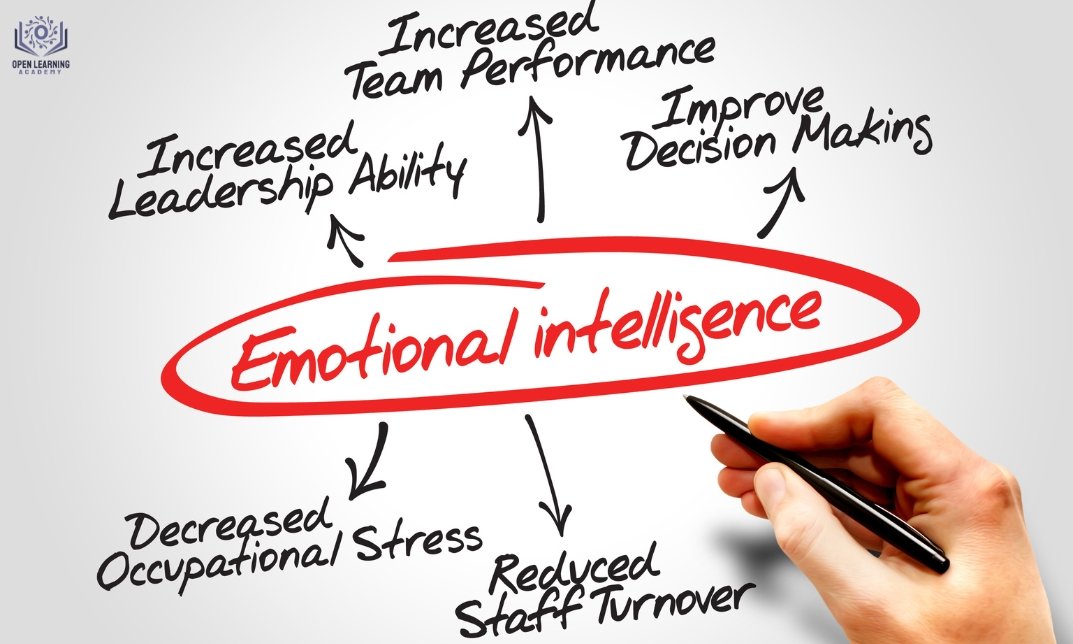No products in the cart.
Why is it that some people seem to handle challenges effortlessly while others find them overwhelming? The difference often lies in emotional intelligence (EI). This term describes a person’s ability to recognise, understand, and manage their emotions, as well as to navigate relationships effectively. But how do you know if you have good emotional intelligence? Let’s break it down step by step.
What is Emotional Intelligence
Emotional intelligence is more than just being aware of your feelings. It involves using that awareness to guide your actions and improve your interactions. While many people think of intelligence as problem-solving or academic skills, EI focuses on understanding emotions—both your own and others.
Good emotional intelligence is linked to better mental health, stronger relationships, and improved decision-making. Therefore, knowing where you stand can significantly impact your personal and professional life.

How Do You Know If You Have Good Emotional Intelligence?
Here are the key signs to help you determine if you have good emotional intelligence.
Ability to Influence Other People
Being able to influence others positively is a sign of emotional intelligence. People with this skill inspire trust and cooperation, whether in professional or personal settings. For example, they adjust their communication style to connect with different individuals effectively. As a result, they encourage collaboration, reduce misunderstandings, and become invaluable team members and leaders.
Managing Difficult Situations Successfully
Handling challenging situations with composure is another sign of strong emotional intelligence. Instead of reacting impulsively, emotionally intelligent individuals remain calm and assess their options carefully. This thoughtful approach helps them make better decisions and overcome obstacles efficiently. Moreover, their ability to stay composed often reassures and inspires confidence in those around them.
Knowledge About Own Strengths and Weaknesses
Self-awareness is a fundamental trait of emotional intelligence. People with high EI clearly understand their strengths and acknowledge their weaknesses without defensiveness. This awareness allows them to focus on areas where they excel while actively improving their shortcomings. Therefore, they can set realistic goals and avoid overextending themselves, leading to greater personal and professional satisfaction.
An Excellent Judge of Character
Emotionally intelligent individuals are adept at reading people and assessing their intentions. They pay close attention to non-verbal cues like body language, tone, and expressions to gain deeper insights into others’ feelings. This skill enables them to form genuine connections and build trust quickly. Furthermore, it helps them steer clear of toxic relationships by recognising dishonesty or manipulation early.
Extremely Curious About People
High emotional intelligence often comes with a deep curiosity about others. Emotionally intelligent individuals take a genuine interest in understanding what people think, feel, and value. This curiosity leads them to ask thoughtful questions and listen attentively, creating meaningful conversations. Consequently, they build deeper connections and develop more fulfilling relationships.
No Inclination to Be Perfect
Emotionally intelligent individuals understand that perfection is neither realistic nor necessary. They focus on growth and learning rather than obsessing over flawlessness. This mindset helps them embrace mistakes as opportunities to improve and take calculated risks. As a result, they experience less stress and open themselves to innovation and creativity.
Ability to Express Oneself Clearly
Clear communication is a very important aspect of emotional intelligence. Emotionally intelligent people articulate their thoughts and emotions in a way that others can easily understand. They carefully choose their words and adapt their tone to match the context, ensuring their message is received positively. Moreover, this clarity fosters understanding, resolves conflicts, and strengthens relationships.
Utterly Empathetic
Empathy lies at the heart of emotional intelligence. It involves understanding and sharing others’ emotions while showing genuine care for their well-being. Empathetic individuals actively listen, offering thoughtful responses that demonstrate compassion. Consequently, this ability builds trust and deepens connections, making them more effective in both personal and professional relationships.
No Grudge
Letting go of grudges is a key characteristic of emotionally intelligent individuals. They recognise that holding onto resentment is emotionally draining and unproductive. Instead, they prioritise forgiveness and focus on moving forward constructively. This approach improves their mental well-being and strengthens relationships by creating space for positivity and growth.
Control Over Thoughts and Actions
Self-control is a defining feature of emotional intelligence. Those with high EI manage their impulses effectively, ensuring their emotions do not dictate their actions. For example, they take a moment to cool off before responding to criticism or handling disagreements calmly. As a result, this discipline helps them approach challenges rationally, leading to better outcomes for themselves and others involved.

Conclusion
So, how do you know if you have good emotional intelligence? Well, if you can influence others, stay calm in tough situations, understand yourself deeply, and communicate clearly, you’re definitely on the right path. Moreover, emotional intelligence is not about being perfect; rather, it’s about recognising and managing emotions effectively.
By reflecting on these traits and working to strengthen any weaker areas, you can continue to grow your emotional intelligence. Ultimately, over time, this will lead to better relationships, greater success, and a more fulfilling life.
Unlock your potential with Open Learning Academy‘s Emotional Intelligence Course—develop stronger relationships, navigate challenges, and thrive in every aspect of life.




